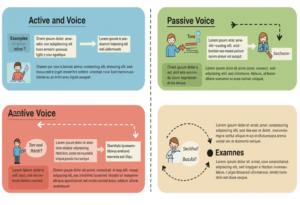My Fiancé Wants to Check My Hymen – What Should I Do?
Many women face pressure about virginity before marriage. Some men believe the hymen proves virginity. This belief is medically incorrect. The hymen can wear away due to exercise, tampon use, or natural causes. Asking to check the hymen before marriage raises ethical and trust issues in a relationship.
What Is the Hymen and How Does It Work?
Hymen Structure and Function
The hymen is a thin membrane at the vaginal opening. It is not a sealed barrier. Some women are born with little or no hymenal tissue. Others have a more prominent hymen. The shape and elasticity vary between individuals.
Common Ways the Hymen Can Wear Away
- Physical activity – Sports, cycling, and horseback riding
- Tampon use – Inserting tampons can stretch or tear the hymen
- Medical exams – Pelvic exams may affect the hymen
- Natural changes – Hormones and puberty can alter the hymen
Why the Hymen Does Not Prove Virginity
The hymen is not a reliable indicator of virginity. Some women have a fully intact hymen despite being sexually active. Others may have a torn hymen without ever having intercourse. The medical community, including the World Health Organization (WHO) and American College of Obstetricians and Gynecologists (ACOG), confirms that a hymen exam does not prove virginity.
Why Does My Fiancé Want to Check My Hymen?
Cultural and Social Expectations
Many societies link virginity to purity. Families and communities often reinforce these beliefs. Some men may feel pressure to ensure their future wife is a virgin. These expectations stem from misinformation rather than scientific facts.
Mistrust and Control in Relationships
A request to check the hymen shows a lack of trust. Relationships need mutual respect. If a partner demands proof of virginity, it may indicate control issues. Healthy relationships prioritize emotional connection over physical tests.
Psychological Impact on Women
- Loss of dignity – Feeling objectified and disrespected
- Emotional distress – Anxiety, shame, and pressure
- Relationship strain – Reduced trust and increased conflict
Medical Experts on Hymen Examination
What Gynecologists Say About Hymen Checks
Doctors do not recommend hymen exams for virginity testing. The World Health Organization calls these tests unethical. The United Nations (UN) classifies virginity testing as a violation of human rights. Medical professionals confirm that no test can prove past sexual activity.
Legal and Ethical Concerns
Many countries have banned virginity testing. The practice is considered a form of gender discrimination. In some cases, it can lead to forced medical procedures. Respecting personal autonomy is essential in all relationships.
How to Handle This Situation
Open Communication with Your Fiancé
If your fiancé insists on a hymen check, discuss the issue calmly. Explain the medical facts. Share information from reliable sources. Ask why he believes this test is necessary. A respectful conversation may help clear misunderstandings.
Setting Personal Boundaries
Your body belongs to you. No one has the right to demand a physical examination without consent. If your fiancé refuses to accept medical evidence, consider whether the relationship is based on mutual respect.
Seeking Professional Advice
Relationship counselors can help navigate trust issues. Therapy can provide tools for handling control dynamics. Medical professionals can confirm the facts about the hymen. Speaking with a trusted expert can offer clarity.
Signs of a Healthy Relationship
A supportive partner values trust over physical tests. Signs of a strong relationship include:
- Respect – Accepting personal decisions without pressure
- Trust – Believing in honesty rather than seeking proof
- Emotional support – Prioritizing mental and physical well-being
- Equality – Making decisions together, not through control
Final Thoughts
Virginity is a personal and cultural concept, not a medical condition. The hymen does not determine a woman’s worth. If a fiancé demands a hymen check, it reflects deeper issues of trust and control. A healthy relationship is built on mutual understanding, respect, and emotional connection.
Would you like me to add a section with frequently asked questions or expert quotes?







